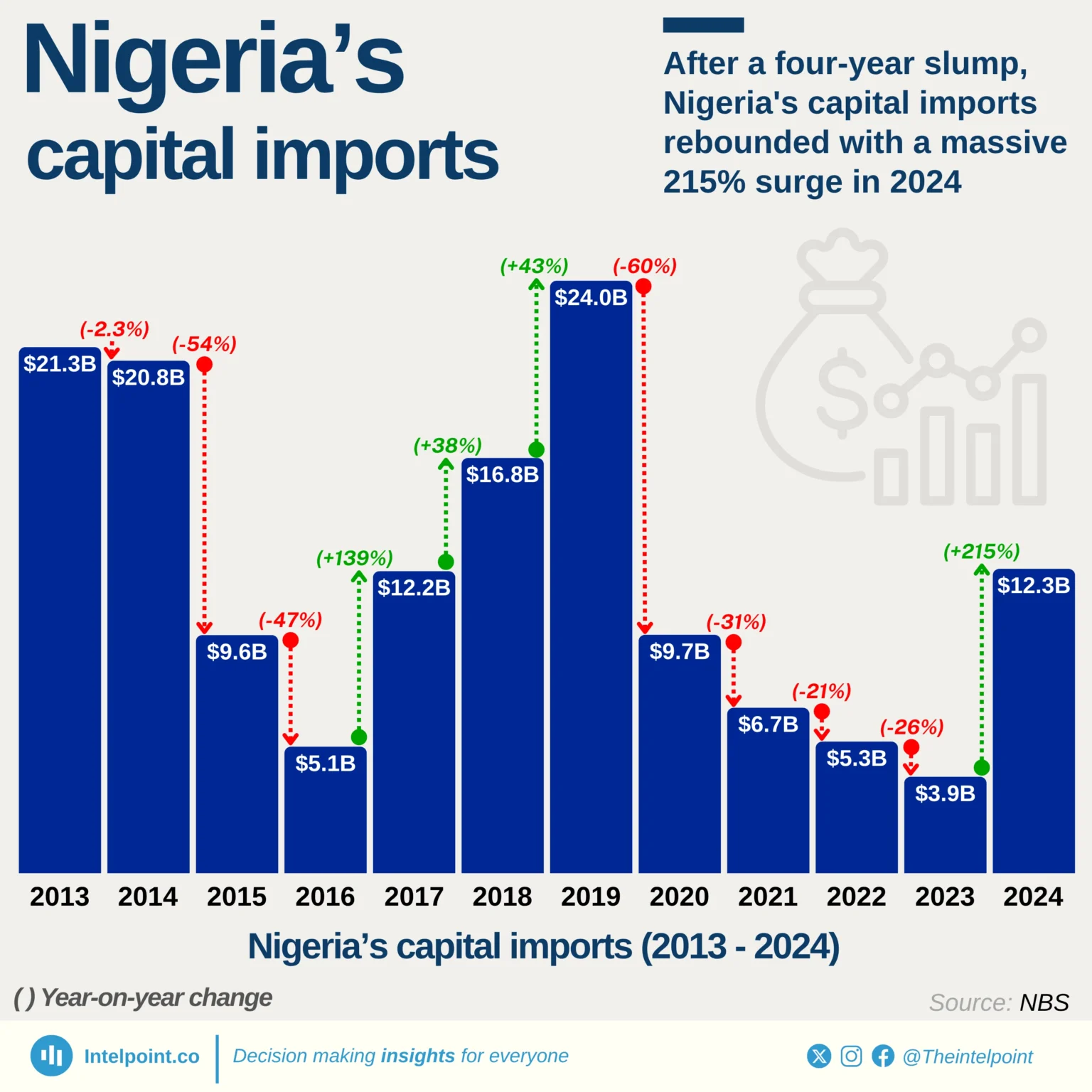Nigeria recorded $5.6 billion in capital inflows during the first quarter of 2025, according to data from the National Bureau of Statistics (NBS). The inflows highlight growing confidence in the country’s financial system, following reforms implemented by the Central Bank of Nigeria (CBN) under Governor Olayemi Cardoso.
Of the total, $3.1 billion (55.4%) went into the banking sector, reflecting the positive impact of financial sector stability in attracting both domestic and foreign investors. Portfolio investments led the inflows with $5.2 billion (92.2%), followed by other investments at $311.2 million (5.5%), while foreign direct investment accounted for $126.3 million (2.2%).
The NBS report also revealed that capital inflows largely originated from the United Kingdom, which contributed $3.68 billion (65.3%)of the total. Sectoral distribution showed the banking sector leading, followed by financing at $2.09 billion (37.2%) and production/manufacturing at $129.9 million (2.3%).
CBN Reforms Drive Investor Confidence
Analysts attribute the surge in capital inflows to CBN policies such as currency reforms, unification of exchange rates, and the clearance of over $7 billion in foreign exchange backlog, which have strengthened Nigeria’s investment outlook. The World Bank described these measures as bold interventions to improve the economy’s long-term sustainability.
The country’s sovereign risk spread has also fallen to its lowest level since January 2020, erasing the pandemic-era premium and boosting investor sentiment.
In an analysis by Afrinvest West Africa Limited, Managing Director Ike Chioke noted that portfolio investments dominated inflows, rising 30.1% quarter-on-quarter and 150.8% year-on-year, with money market instruments, bonds, and equities attracting $4.2 billion, $877.4 million, and $117.3 million respectively.
Rebased GDP Creates New Opportunities
The rebasing of Nigeria’s GDP has provided a more accurate representation of the country’s economic structure, highlighting the growth of the agriculture and services sectors while reflecting a decline in the relative share of industry.
Statistics Nigeria (NBS) reported that nominal GDP rose from N205.09 trillion in 2019 to N372.82 trillion in 2024, showing a significant structural shift. According to Statistician-General Adeyemi Adeniran, rebasing improves policy formulation, resource allocation, and economic planning by capturing emerging sectors such as entertainment and ICT.
Economists emphasize that GDP rebasing, while improving data accuracy and visibility to investors, must be complemented with substantive policies to drive real economic growth. Seun Onigbinde (BudgIT) highlighted that rebasing supports targeted interventions in infrastructure, job creation, and fiscal planning. Similarly, Nelson Adedeji, a Lagos-based economist, stressed that addressing security, agriculture, manufacturing, and ease of doing business remains crucial to translating statistical gains into tangible benefits for Nigerians.
Banking Sector Recapitalization Key to $1 Trillion Economy Goal
CBN Governor Olayemi Cardoso has urged banks to prepare for another round of recapitalization to support the federal government’s target of a $1 trillion GDP by 2030. He stressed that current capitalization levels are insufficient to sustain an economy of such scale and called for measures to attract large-scale transactions and investments.
Experts note that the combination of robust banking capital, accurate economic data from GDP rebasing, and continued policy reforms positions Nigeria as an increasingly attractive destination for both domestic and foreign investors.




